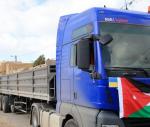You are here
Inequality and capital
Jul 07,2014 - Last updated at Jul 07,2014
The best-selling book Capital in the Twenty-First Century by French economist Thomas Piketty is of prime significance for Jordan and Jordanian social scientists if not decision makers. It depicts how over time the accumulation of small errors lead to huge divergences, and in a way, it speaks of the harm the real estate sector is doing to the economy.
The main thesis of the book is that when the return on capital (profits, dividends, interest, rent, and other income from capital) exceeds the rate of economic growth, the long-term impact is the concentration of the wealth in the hands of the few; thus enhancing inequality which leads to instability and the erosion of democracy as the many come to be controlled by the very few.
Such concentration of wealth in the hands of the oligarchs will not encourage greater economic growth, and even as wealth is passed from one generation to the next the consequence is not for the betterment of the world but the making of greater inequality.
Jordanian decision makers who are in charge of planning for the long term, I claim, would do well to heed the advice of this book.
The source of wealth in Jordan has been land; not only has the return on land been high over the past 60 years, but it has been higher than that of any other economic activity. Further, the growth in the price of land has far outpaced that of the economy.
Moreover, the laws being what they are, tend to encourage such an investment; an investment that creates no added value or jobs. On the contrary, land investment has created an idle wealthy class whose fortune is passed on from one generation to the next.
Therefore, the greatest danger to the economy emerges not only from the fact that capital in Jordan has a much higher return than labour, the return on one specific form of capital, land, which is a lame, dormant and unproductive investment is so high that everything else pales in comparison.
In such an economy, where land endows wealth, it will be impossible not to increase inequality and face troubles as time goes by.
In addition, areas such as Amman where land prices increased due to say a refugee influx have seen a massive dichotomy in terms of income growth relevant to other governorates where land prices did not increase by the same amount.
Consequently, regional disparities within the Kingdom have become a matter of fact and they are growing.
Serious study and evaluation of the erosion of production and productivity as a result of the land generated wealth in Jordan is vital.
A departure from land being the only viable and highly prized investment is a must if Jordan is to avoid an unnecessary strife that is caused by a rising inequality.













